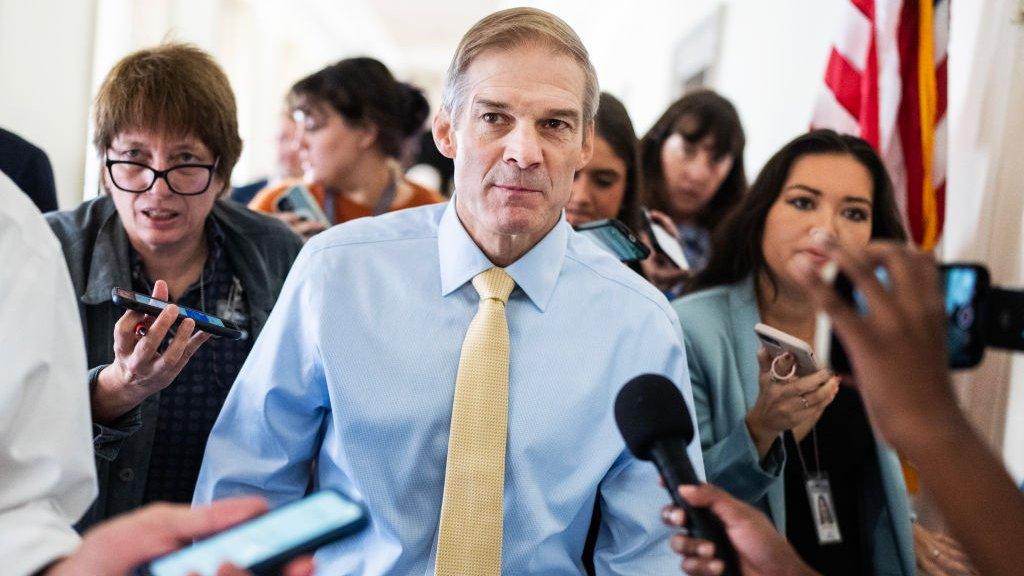White House race heats up with cries of dictatorship
- Published
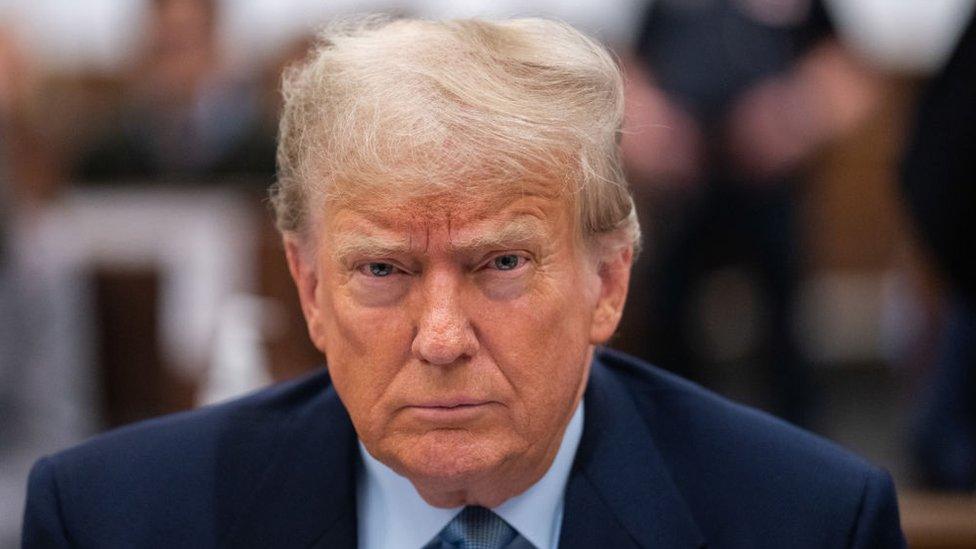
Trump said he wouldn't abuse his power "except for day one"
Dictatorship - or at least the threat of it - has been a topic of much discussion in American politics this week.
As Donald Trump continues his seemingly easy march to the Republican presidential nomination, critics have been sharpening their attacks on him.
Neoconservative scholar Robert Kagan penned an essay in the Washington Post warning that "the odds of the United States falling into dictatorship have grown considerably". And former Republican congresswoman Liz Cheney, another vocal critic of Mr Trump, told CBS the US was "sleepwalking into dictatorship".
The former president dismissed these warnings as more evidence of "Trump Derangement Syndrome".
Then, at a town hall forum in Iowa on Tuesday night, Trump - who has frequently lavished praise on strongmen like Russia's Vladimir Putin and North Korea's Kim Jong-un - threw petrol on the fire and danced around the flames.
As some US news headlines put it, Trump seemed to confirm the worst fears of his critics - that he would become a "dictator" if re-elected to the US presidency.
However, the exchange was a bit more complicated than that.
Fox News moderator Sean Hannity was attempting to prompt the former president to dismiss the accusation that, if elected next year, he planned to abuse presidential power to punish his enemies, as Trump has sometimes implied in past comments.
"You are promising America tonight, you would never abuse this power as retribution against anybody?" Hannity asked.
And that's when Trump, again venturing into that grey area between humour and seriousness, said he wouldn't abuse his power... "except for day one" of his next term in office.
He added that he would take unilateral action on border security and energy extraction (to "drill, drill drill", as Trump put it).
"After that, I'm not a dictator," he concluded.
Such half-assurances haven't exactly come as a relief to Trump's critics across the political spectrum.
According to them, democracy would be tested in a second term because there would be fewer safeguards.
They say the former president has himself talked about weaponising the justice department and of replacing civil servants with loyalists. And they warn this time he would not have experienced figures in his cabinet willing to object to more extreme proposals.
A Trump super PAC hit back that the real authoritarian is in the White House now.
"Joe Biden abuses his power to target journalists, politicians, activists, and concerned parents," Make America Great Again Inc wrote in an email on Wednesday.
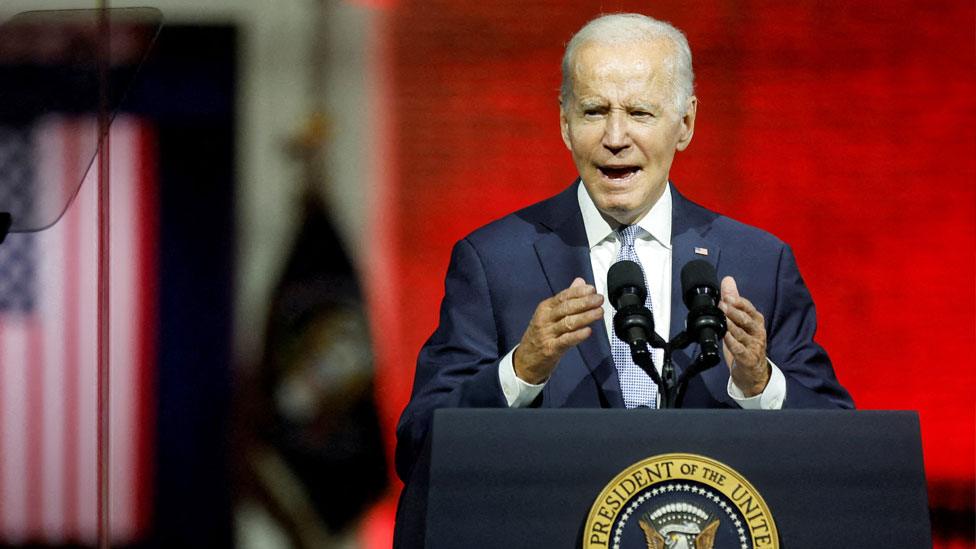
Trump supporters say it is Biden who abuses presidential power
One of Trump's Republican presidential rivals, former Arkansas Governor Asa Hutchinson, told the BBC's Americast that while Trump may never fully embrace the term "dictator", a second Trump term in office could be dangerously authoritarian.
"Whenever you're looking at an authoritarian president, that assumes more power, and disregards Congress, disregards the court and the judiciary and the decisions they make, that is a consolidation of power in one branch of government," Hutchinson says. "That's not how our country was designed, and it is autocratic."
It's what Hutchinson said after that, however, that should be concerning to Joe Biden's presidential campaign. If, as is widely predicted, Trump and Biden are the two major-party nominees in 2024, the former Arkansas governor would look for another option.
"'I'm not going to pick [Biden] over Trump," Hutchinson said. "I will be looking for alternatives to support if that was the scenario."
Back in 2020, and again in the early months of his 2024 presidential campaign, Biden has tried to position himself as a choice for disaffected Republicans in addition to independents and members of his own party.
But despite worries about a potentially autocratic candidate on the Republican line - one who plays fast and loose with the term dictator - Hutchinson would not entertain backing the incumbent Democrat.
Public opinion polls a year from election day aren't particularly reliable, but recent head-to-head surveys pitting Trump against Biden are enough to indicate that the contest will be close. And if the outspoken anti-Trump Hutchinson is looking for a presidential alternative, he is probably not the only one.
With the upstart political group No Labels considering offering a centrist candidate, and others - like Liz Cheney - toying with the idea of independent bids, disaffected voters may have other options on the ballot.
In an election where every vote will be precious, it's a dangerous place for Biden to be. And, according to Trump's fiercest critics on the right, it's a dangerous place for the country to be.
In his Washington Post essay, Kagan warns that Trump is closer to winning the presidency, thanks to Republican support and national mood, than many understand - and that his actions once elected would be more dangerous.
He says Trump and his allies will engage in a campaign of persecution, targeting perceived enemies while many Americans stand idly by.
Many Americans, including millions of Trump supporters, do not see it that way, of course. And come next November, a plurality could return the former president to the White House in spite of all the high-minded warnings of academics like Kagan.
It's becoming clear, however, that Biden and the Democrats will frame this election as one where democracy is at stake. And, with dictator talk, joking or serious, Trump seems to be goading them into doing so.

More on the US election
Explained: A simple guide to the US 2024 election
Republicans: Who are the challengers to Trump?
Policies: What a Trump second term would look like
Voters: 'It's like 2020 all over again - with higher stakes'
- Published4 October 2023
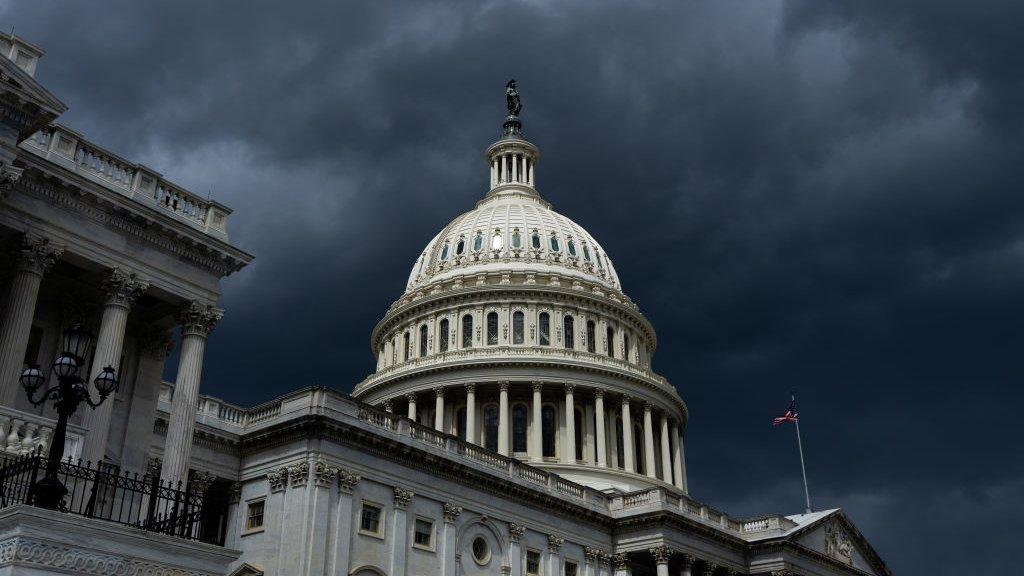
- Published17 October 2023
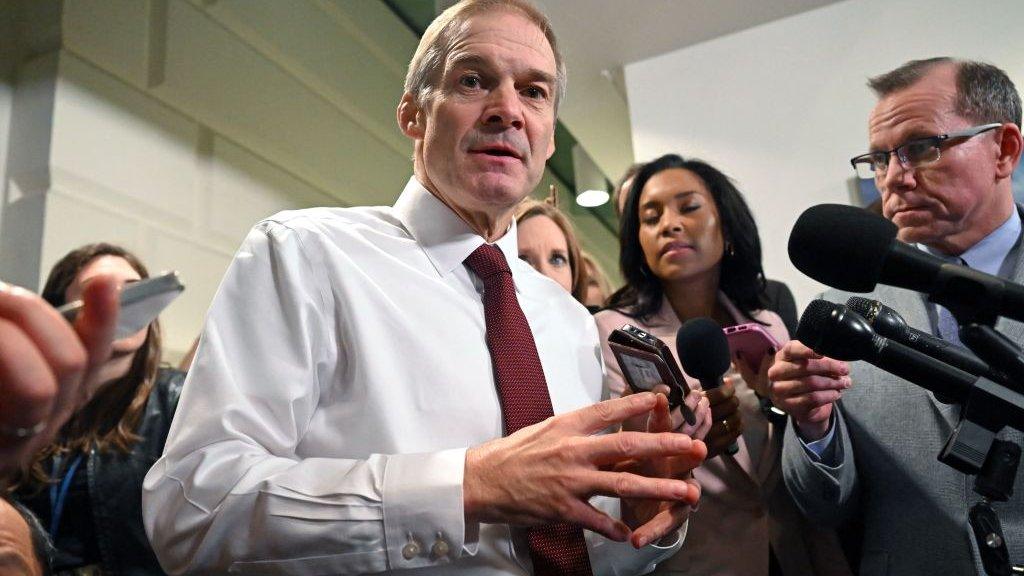
- Published16 October 2023
